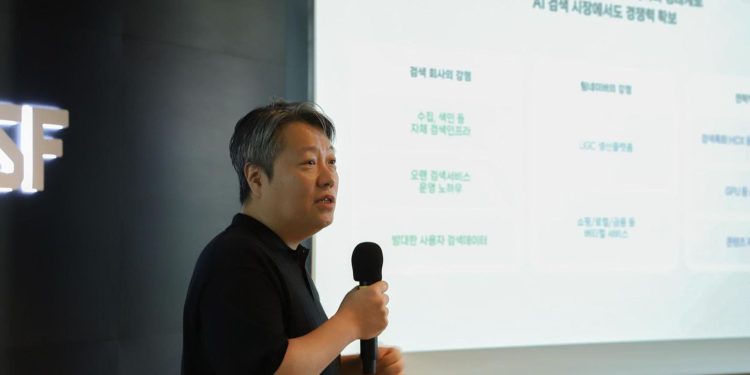South Korea’s leading internet platform, Naver, has unveiled plans to introduce an AI-powered agent designed to make search more conversation-based. In response to the growing influence of generative AI tools like ChatGPT, Naver’s upcoming system will integrate core services, including finance, maps, and shopping, to deliver a more interactive and seamless search experience.
At a press conference held at its D2SF headquarters in Seoul, Naver unveiled its vision for the future of search. The company plans to roll out an “Integrated Agent” system supported by a dedicated “AI Tab” interface by 2026.
This new experience will operate independently of the existing search page, providing users with a more personalized and seamless way to find information, navigate services, and access topic-specific AI briefings in areas such as finance and healthcare.
At the center of Naver’s AI search strategy is the AI Briefing feature, introduced earlier this year, which delivers curated results by leveraging services across its platform—including Naver Place, Naver Pay, and Naver Shopping. Currently covering around 3% of total search queries, Naver aims to expand this feature to 20% by the end of 2025. The briefings will also be extended to more specialized areas, such as short-form video content, healthcare, and finance, offering users more personalized and context-aware search results.
This development will serve as the foundation for Naver’s larger AI initiative—the “AI Tab,” an integrated interface set to launch in the first half of 2026. Unlike traditional search pages, the AI Tab will act as a smart assistant capable of handling more complex and context-aware tasks. Users will be able to search for a topic and complete a sequence of related actions—like making restaurant reservations, planning trips, or making purchases—within a single conversational flow.
To achieve this, Naver’s AI system will utilize vertical agents specialized in various categories, including places, shopping, and finance. These agents will collaborate within the AI Tab to provide a cohesive and task-oriented experience.
The underlying engine for this AI system will continue to be HyperCLOVA X, Naver’s in-house large language model. Still, the company remains open to integrating other open-source or commercial models to optimize performance. Executives emphasized that while LLM technology is rapidly becoming standardized, Naver’s advantage lies in its access to exclusive local content and its ability to summarize long-form formats, such as video. These capabilities are expected to set the platform apart from global competitors such as Google and Microsoft’s Bing, which have recently gained market share in Korea.
To support creators in the AI-driven ecosystem, Naver is also developing the “AI Highlights Project,” which will spotlight original content featured in AI briefings. This initiative aims to sustain user engagement and strengthen the content ecosystem by offering creators visibility through badges and enabling interactions, such as subscriptions and community sign-ups, directly from AI-driven search results.







